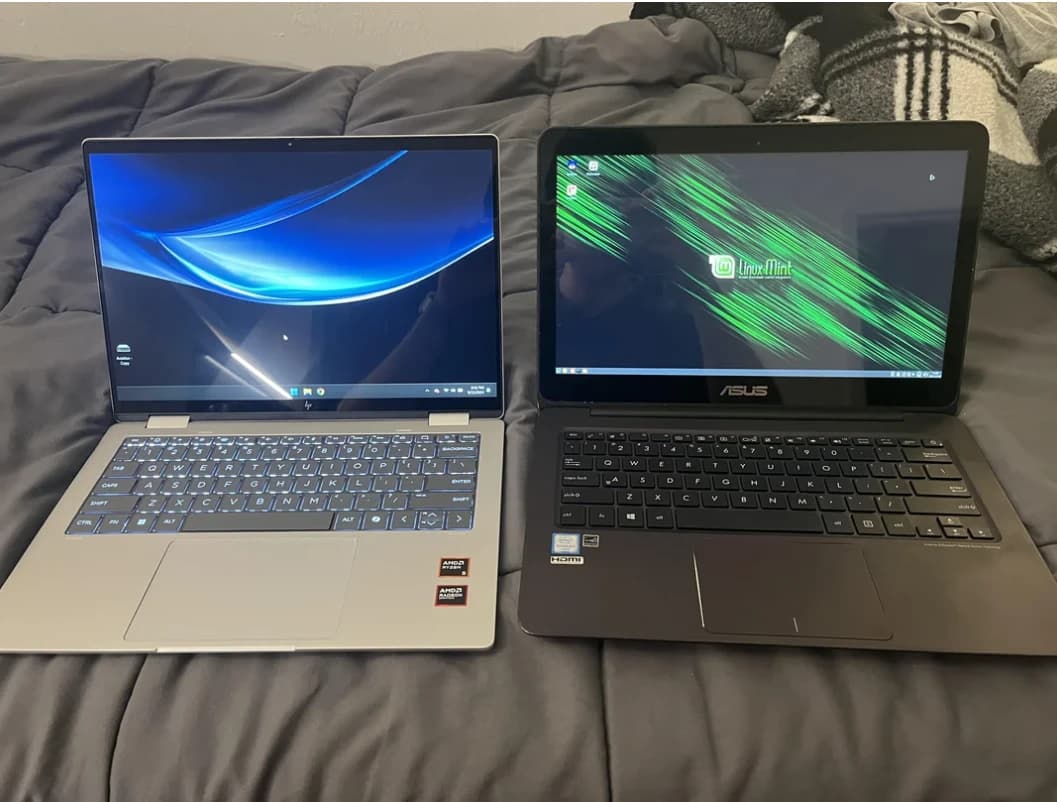any ideas guys help out
Keep the new one nonetheless; even with Linux, you shouldn’t be using just two cores and four gigabytes of RAM these days.
Yes, I would like to know if the original poster tried their real-world use cases on Linux Mint to see if it was still “as fast.” It may perform simple activities more quickly, but it won’t guarantee that Chrome or other contemporary apps will operate more quickly. It’s possible that there is reduced overhead, but that’s all.
Yes, I have tested a little work on the old laptop, and it naturally functions perfectly, if a little slower. The old PC was unusably slow before Linux. I will continue experimenting with Linux to see how it works.
What specific areas of Windows was it noticeably slower? I don’t really notice a large performance jump for workflows of any modern usage in a laptop, so you might want to just see if things end up being just as slow after a while on Linux.
Windows would take fifteen minutes to boot up to the home screen, and any kind of operation would be extremely slow. Even after clearing down the desktop, things weren’t better. Thus, perhaps installing Linux from scratch was the solution.
You would benefit much from SSD.
Two cores these days is rather sluggish. As a backup, I have a cheap Chinese laptop. It contains a 2019 Celeron N4020 processor with 4GB of RAM. On it, I use Linux. It constantly microfreezes and has trouble playing YouTube videos without several missing frames. When I first bought it, I thought it would be slow, but not that slow.
Clearly a new one. Compared to the outdated Asus you have on the right, it is MILES better.
